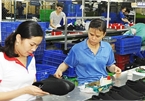Biotechnology and AI
In early February, when coronavirus began spreading rapidly in Wuhan City, China, early detection of infection cases put into quarantine was a big challenge for medical workers.

To solve the problem, Alibaba joined forces with Damo Academy to develop an AI-based patient identification system. The equipment just needed 20 seconds to discover coronavirus infected patients with the high accuracy of 96 percent.
Analysts believe that the post-Covid-19 period will witness an investment capital flow into biotechnology and AI.
Harvard Business Review reported that AI analyzed biological structure more accurately and has high data processing speed. The combination of AI and biotechnology promises to control and prevent the spread of similar epidemics in the future.
| Covid-19 has changed consumers’ habits. A survey by Nielsen Vietnam found that urban habits of going shopping at supermarkets and traditional markets have dropped by 50 percent, while the number of online shopping transactions increased by 25 percent. |
Online retail and fast delivery
Covid-19 has changed consumers’ habits. A survey by Nielsen Vietnam found that urban habits of going shopping at supermarkets and traditional markets have dropped by 50 percent, while the number of online shopping transactions increased by 25 percent.
The number of transactions via e-commerce sites has soared. Tiki, Lazada and Shopee reported twofold to fourfold increases in numbers of orders they receive daily. Co-op Mart reported that its online orders increased by 4-5 times.
Realizing the online shopping boom, Grab, an e-hailing app has launched GrabMart service, while The Gioi Di Dong has introduced shopping service for clients.
The online retail market has been growing well in recent years, by 39 percent over the last five years, higher than the 10per cent growth rate of the traditional retail market. However Covid-19 could serve as a ‘catalyst’ that helps accelerate the development of the online market.
Fintech boom
In an effort to restrict the spread of SARS-CoV-2, the government recommended people make non-cash payments for goods and services. This explains the sharp rise in the number and value of online transactions via internet banking and e-wallets.
The non-cash payment wave is expected to become even stronger in the future when people have confidence in service quality, speed and efficiency. JP Morgan reported that 19 percent of e-commerce transaction value in Vietnam is carried out via e-wallets.
The figure is equal to cash payment, but lower than card payment (34 percent) and bank transfer (22 percent).
Green real estate on the rise
The epidemic reflected the polluting living environment. Environment quality, green utilities, green building materials and environment-friendly technologies will be of great concern.
The awareness of living green and healthy will also bring opportunities to the ‘second home’ market, helping the market recover and even explode in some localities.
Mai Lan

Vietnamese businesses ready to be connected with “avenue” EVFTA
Economic cooperation between Vietnam and the European Union (EU) is about to turn a new page in history as the Vietnamese National Assembly is moving very close to ratifying the EU-Vietnam Free Trade Agreement (EVFTA).

Agribusinesses rocked by twin negative impacts
In spite of several highlights, the agricultural picture remains gloomy due to twin blows of climate change and coronavirus.
 Biotechnology, online retail, fintech, and green real estate are expected to prosper during the post-COVID period.
Biotechnology, online retail, fintech, and green real estate are expected to prosper during the post-COVID period.